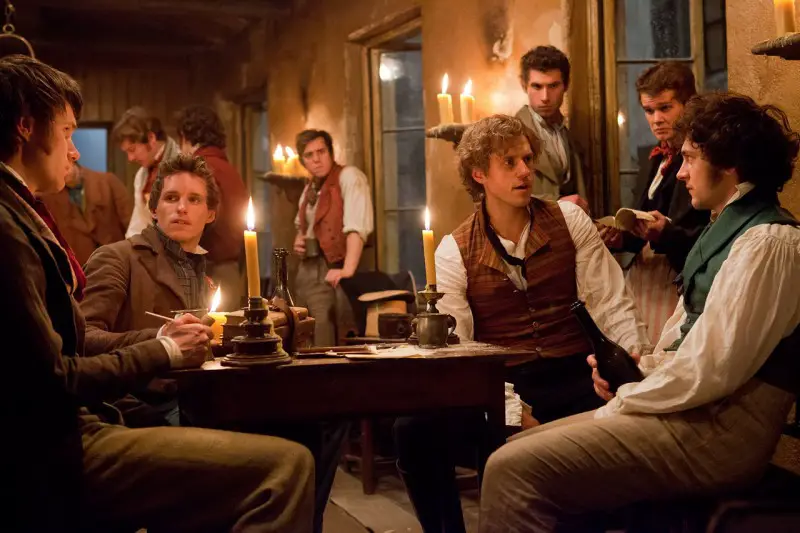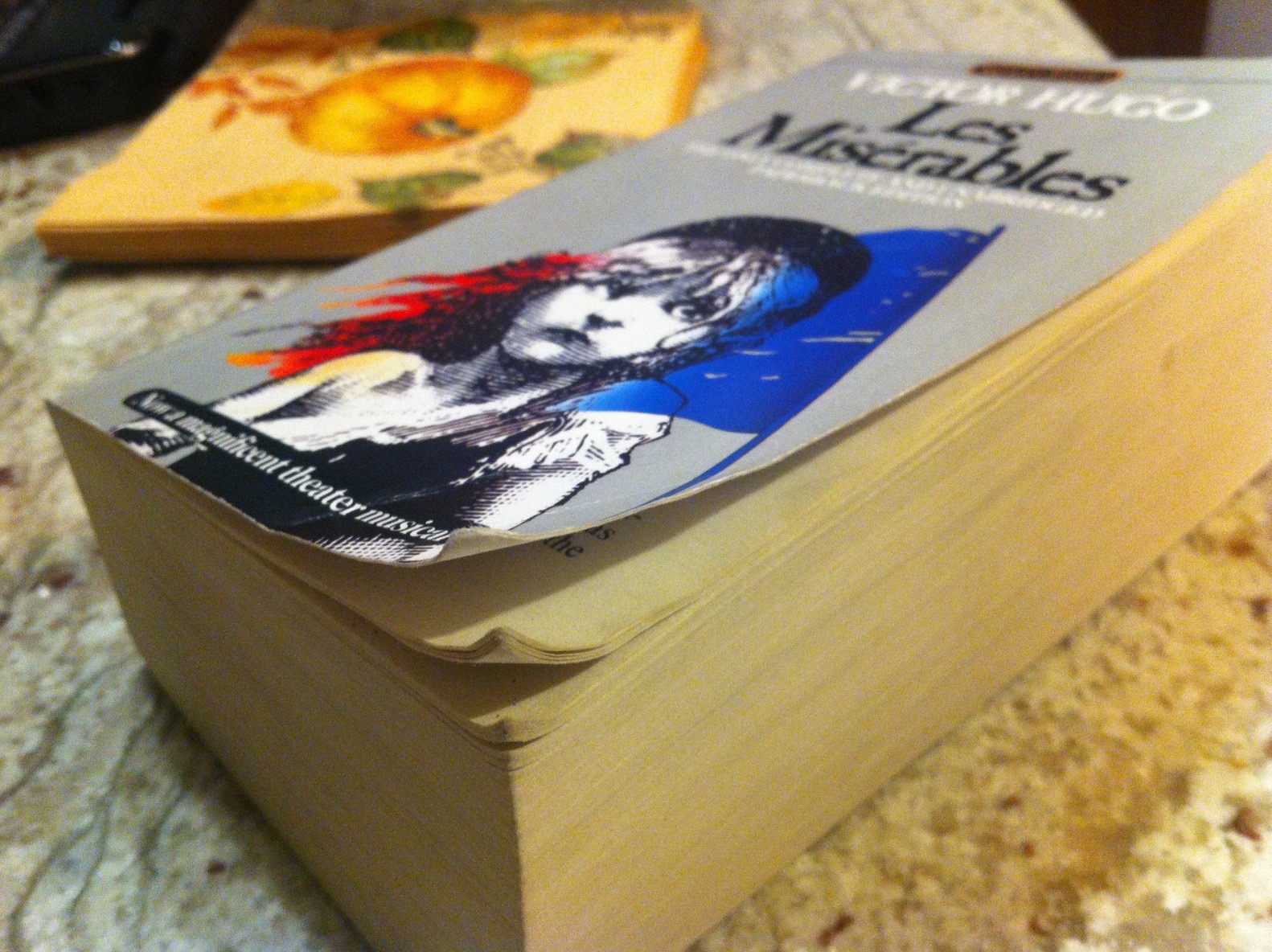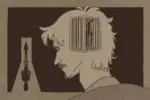I’ll be the first to admit that my reading habits in the past have been overly ambitious, and a classic 19th-century Romantic novel by the long-winded Victor Hugo is ambitious.
There are three pieces of that phrase that tend to slam casual readers to a halt. The first is “classic”: Stuffy and only well loved by old English professors who need you to find metaphors and motifs so he can sleep comfortably at night, knowing that his degree went to use.
The second is “nineteenth century.” Oof, that’s old. Didn’t they all talk like Shakespeare back then?
The third is “Romantic.” Sounds nice, maybe a good love story? Except it’s capitalized, and combined with the other two, the only action you’ll be reading about will be how the guy finally saw his love’s ankles.
“Les Misérables” is worth your time if you deign to give it such. I know it looks like a dense, dry read, and that you’re just so sick of your teachers harping on classical literature as the end-all be-all. And by now, you might hate me too for beating the proverbial dead horse. But I want to show you that it’s more than just metaphors and stupidly long sentences.
So here are four reasons why you should at least give reading Victor Hugo’s “Les Misérables” a thought.
1. Very Quotable
Quick summary: A newly released prisoner, Jean Valjean, embarks on a quest to live out a virtuous life after a kindly bishop saves him from getting arrested again. He becomes wealthy through his business and is the adoptive father to orphan Cosette, but Inspector Javert knows of his past and hunts him relentlessly to enforce his view of justice. “Les Misérables” takes place during the student uprisings in Paris during 1832 and includes a very long cast of characters that I don’t have the space or time to mention.
With that in mind, this is a book that contains universal commentary on subjects like love, family and forgiveness. Hugo was a master of language, and although he was intensely verbose, he articulated such subjects in intelligent ways. Here are a couple quotes:
“If there did not exist someone who loved, the sun would become extinct.”
“It is nothing to die; it is dreadful not to live.”
And, of course, there’s even a bad knock-knock joke:
“’Who goes there?”
Enjolras replied in a haughty and vibrating tone: “The French Revolution!”’
2. Best Chapter Titles
Victor Hugo did whatever he wanted in “Les Misérables,” which included writing entire chapters dedicated to the Parisian Sewer system, the logistics of a very specific convent in France and the Battle of Waterloo. Do these push the plot forward? Debatable. The last sentence of the 50-page description of the Battle of Waterloo is the only piece that matters for the main plot.
https://twitter.com/LindsayPB/status/1038492244377042945
Don’t let that deter you, though. Hugo’s chapter titles are worth the occasional info-dumping chapter. Some of my personal favorites are “Philosophy after Drinking,” “In What Mirror M. Madeleine Contemplates His Hair,” “It is Not Necessary to be Drunk in Order to be Immortal,” “One Should Always Begin by Arresting the Victims” and “Marius Becomes Practical Once More to the Extent of Giving Cosette His Address.”
Unfortunately, I can’t list them all here, but hopefully that gives you a taste of the sort of tomfoolery that takes place in this behemoth of a book.
3. Les Amis de l’ABC
A merry band of bourgeois college guys can only be a good addition to a story as hectic as “Les Misérables.” The connection between them and the rest of the plot is that Valjean’s adoptive daughter, Cosette, attracts the attention of Marius, who is one of the Les Amis.

Their antics bring a lot of light to an otherwise morose novel. At one point, one of the other Les Amis, Courfeyrac, told Marius that he should go out and meet more women because it seemed that Marius had been avoiding them. This causes Marius to not only avoid women, but also Courfeyrac in case he tried to give more advice.
There’s also the dynamic between Enjolras and Grantaire, who are about as different as can be. Enjolras’s one true love is France, and his discipline and intensity make him one hell of a revolutionary. And then there’s Grantaire, a drunken student who doesn’t care about anything revolutionary but who really likes Enjolras.
4. A Series of Bad Ideas
Unfortunately, the musical doesn’t capture all the chaos that happens in the novel. Much like his chapter titles, Hugo pairs thoughtful commentary with humor. Some of the smaller plots are completely insane, causing even this brick of a book to be a page turner.
My favorite instance takes place at the convent where Jean Valjean and Cosette are living, unbeknownst to Javert. They don’t really want to leave, but they aren’t supposed to be living in the convent either, so they need to leave quickly.
So when one of the nuns dies, they wish to place her body in the crypt beneath the convent, but the town says that they must bury her in the cemetery. This is, of course, the perfect opportunity to sneak Valjean and Cosette out.
Valjean and the groundskeeper, Fauchelevent, devise a plan where they stick Jean Valjean in the casket. Fauchelevent was going to get drunk with the gravedigger to distract him from his duties so Valjean could crawl out, but all does not go according to plan.
A different gravedigger shows up, and he doesn’t drink. So of course, he won’t leave his job unfinished, and he’s burying Valjean alive as Fauchelevent frantically comes up with excuses to make him leave. Fauchelevent finally chases him off, and when he opens the coffin, Valjean has fainted. This is just one of several odd occurrences.
https://twitter.com/moisturrrized/status/1038215439992713216
Flashback: My senior year of high school, and I’m sitting on the couch in front of the TV. My normally neutral face contorted in bittersweet joy as the credits for the musical “Les Misérables” rolled across the screen. In retrospect, I think I was sadly humming along near the end. There might have been tears.
My sister watched me with her normal expression: bemusement. When I turned to her, she knew what I was thinking. “Don’t look at me like that. You don’t have time to read that book. It’s too long!”
I laughed and wiped my face. “Are you coming with me to the bookstore tomorrow or not?”
“Yeah, I guess.” She replied.
And I didn’t regret it.

















